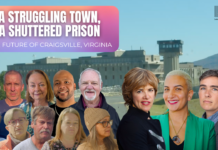When the news broke of the school shooting in Uvalde, Texas, it was chilling to many people to learn that 40 percent of that small city’s budget was allocated to public safety – a budget allocation that utterly failed to keep the children and teachers at Robb Elementary school safe. What might have been a better way to spend that city’s precious funds? After Uvalde, and in the wake of the police murder of George Floyd, residents of many US cities asked that same question. They’re turning to a tool called participatory budgeting that gives residents and taxpayers real decision-making power over their cities’ budgets. It’s already spread to more than 7,000 cities around the world. This week, Laura speaks with Shari Davis and Kristania De Leon, co-directors of the Oakland and NYC based Participatory Budgeting Project, and Shaun Glaze, research director of the Black Brilliance Research Project in Seattle. Participatory budgeting makes a real difference, they say, and at a moment when US democracy itself is hanging by a thread, the experience of participating in budget-making is beginning to validate people’s belief in voting. Could this model bring power to people where they live?
“Participatory budgeting is about transforming the relationship that people can have with government and with community-led decision making so that we make really good, fiscally responsible decisions that reflect community spending priorities.” – Shari Davis
“How do we actually start to move in a way that allows us to meet our needs together, build relationships and see value in the collective?” – Kristania De Leon
“Communities have this expertise. They know what they need. Let’s make sure that we are honoring that expertise and turning that into action.” – Shaun Glaze
Guests:
- Shari Davis: Co-Executive Director, Participatory Budgeting Project
- Kristania De Leon: Co-Executive Director, Participatory Budgeting Project
- Shaun Glaze: Research Director, Black Brilliance Research Project
Prefer to Listen?
Subscribe to our podcast to listen to this week’s episode on your favorite podcast platform.
Transcript
Want More Coverage?
You can find more new economy coverage here.
Accessibility:
The Laura Flanders Show is committed to making our programming, website and social media as accessible as possible to everyone, including those with visual, hearing, cognitive and motor impairments. We’re constantly working towards improving the accessibility of our content to ensure we provide equal access to all. If you would like to request accessibility-related assistance, report any accessibility problems, or request any information in accessible alternative formats, please contact us.

















Comments are closed.